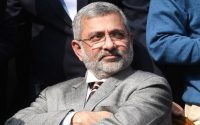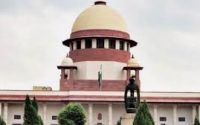$100 Website Offer
Get your personal website + domain for just $100.
Limited Time Offer!
Claim Your Website NowAyodhya Case: SC Reserves Order, to Conduct Closed-door Proceedings Today on Mediation Panel Report.
Source – news18.com
New Delhi: The Supreme Court on Wednesday concluded the daily hearings in the politically sensitive case of the Ram Janmbhoomi-Babri Masjid land dispute in Ayodhya and reserved its judgement. The bench heard for 40 days the arguments in the decades-old temple-mosque dispute — the second longest proceedings in its history.
A five-judge Constitution bench, headed by Chief Justice of India Ranjan Gogoi, granted three days to contesting parties to file written notes on “moulding of relief” or narrowing down the issues on which the court is required to adjudicate. The other members of the bench are Justices SA Bobde, DY Chandrachud, Ashok Bhushan, and SA Nazeer.
The Supreme Court later in the day issued a notice saying the bench will sit in chambers, where parties involved are not allowed, to conduct proceedings on the report of the mediation panel on Thursday.
The concluding day of the marathon hearing during which CJI Gogoi observed “enough is enough” was marked by high drama when Rajeev Dhavan, a senior counsel for the Muslim parties, tore a pictorial map provided by the Hindu Mahasabha purportedly showing the exact birth place of Ram in Ayodhya.
The high voltage hearing in the dispute involving 2.77 acres of land is the second longest after the landmark Keshvanand Bharti case in 1973 during which the proceedings for propounding the doctrine of basic structure of the Constitution continued for 68 days. The hearing on the validity of Aadhaar scheme lasted for 38 days in the top court, which came into existence in 1950.
The bench is racing against time since the verdict has to be delivered before CJI Gogoi demits office on November 17.
Reacting to the development, the Congress said no mediation panel, government or opposition can solve the issue and only the Supreme Court’s verdict will give it finality and broad acceptability.
Congress spokesperson Abhishek Singhvi said reserving the judgement is the “best”.
“No mediation panel, no government, no opposition can solve Ayodhya issue: fractious, divisive and bitter. Only SC verdict would give finality, quietus and broad acceptability,” he said in a tweet.
High drama in court
The hearing was marked by heated exchanges between the lawyers of the Hindu and Muslim sides and midway the issue of settling the dispute through mediation once again cropped up.
The first mediation bid failed to find an amicable resolution leading to the commencement of day-to-day hearing from August 6. Later, the panel, which comprised FMI Kallifulla, a former apex court judge, Sri Sri Ravi Shankar, founder of Art of Living Foundation, and Sriram Panchu, an acclaimed mediator, was allowed to continue mediation proceedings. The panel was believed to have submitted its report to the court on Wednesday.
Dhavan, appearing for the Muslim parties, created a flutter after he took strong objection to senior advocate Vikas Singh, appearing for a faction of All India Hindu Mahasabha (AIHM), relying on a site map and books written by foreign and Indian authors to buttress claims that the central dome of the now demolished structure was the birthplace of the deity and asked the bench as to what he should do with it (map).
The bench said he can shred the documents into pieces. Dhavan then tore the pictorial map in the courtroom.
Hindu parties vehemently sought from the court the dismissal of the 1961 lawsuit filed by the Sunni Waqf Board and other Muslim litigants, saying they could not prove that Mughal emperor Babur created a valid ‘wakf’ and constructed a temple on vacant land at the disputed site.
The Constitution bench was told by senior advocate CS Vaidyanathan, appearing for the Hindu party, that it was the case of the Muslim side that the mosque in question was built by the state (Babur) on the land belonging to it, which has not been proved by them.
Besides Vaidyanathan, senior lawyers Ranjit Kumar, Sushil Jain, Jaideep Gupta, Vikas Singh, PN Mishra, all appearing for various Hindu parties, responded to the 1961 lawsuit filed by Sunni Waqf board and other Muslim individuals and said the case, seeking title claim over the entire 2.77 acre disputed land at Ayodhya, be dismissed as being devoid of any merits.
Vaidyanathan said if the Muslim side claimed title over the disputed land under the doctrine of adverse possession, they will have to accept that the deity or the temple was the previous real owner.
“They cannot claim benefit of adverse possession. If they claim so, then they will have to show the ouster of the prior owner that is temple or the deity in this case,” he told the bench.
The Muslims may have several places for offering “namaz” in Ayodhya but for Hindus, the place of birth of Ram remains the same and that cannot be changed, he argued, adding that taking into the account of unshakeable faith and belief of Hindus, the title of the properties be given to the Hindus.
He further said the arguments of the Muslim side that the land was dedicated as a ‘waqf’ on the ground of being a long user is not sustainable because they did not have the exclusive possession over the property as Hindus and Muslims both were sitting there.
Vaidyanthan said the plea of Muslim parties that Mughals, Nawabs of Awadh, and Britishers gave the grants for the upkeep of the ‘masjid’ did not help their case as it did not prove their title.
Ranjit Kumar, appearing for Hind devotee Gopal Singh Visharad, said Muslims have failed to prove their case and the lawsuit filed by the Sunni Waqf board and others ought to be dismissed as Visharad and other Hindu devotee have “pre-existing rights to worship” at the site.
The character of the disputed site cannot be decided on the basis of the faith of the Muslims, he said, concluding his submissions.
Vikas Singh, representing the All India Hindu Mahasabha, referred to various aspects of the Allahabad High Court judgement and said there has been faith and belief for long on the part of Hindus with regard to the scared nature of the birthplace of Lord Ram.
Singh said the plea of Muslim parties that grants were given by a Board in 1860 during the British regime to Babri mosque for its upkeep was untenable as the Board was dissolved by the Government of India Act two years before in 1858.
He said Hindus kept worshipping at the central dome believing it to be the birth place of Ram and justified the prayers by Hindus at the iron railings at the site, submitting that even at Tirupati, devotees are not allowed to enter into the temple beyond a point.
The counsel for Nirmohi and Nirvani Akhara also advanced arguments in the case to claim management and “shebaithi right” (devotee right) over the disputed land in Ayodhya and said they have been in possession of the property since 1885 and this has been fairly admitted by the Muslim side also.
Dhavan advanced rejoinder arguments and said they were entitled to “restoration of the mosque as it was existing on December 5, 1992, a day before the demolition.
“The destroyed building belonged to Muslims and the right to reconstruct also belonged to us,” he said, adding their case was that the Muslims perfected their title on account of long and uninterrupted possession over the land in question. He said building or no building, the place remains a mosque after it was dedicated to the almighty as wakf.
Dhavan objected to the submission of the Hindu parties that Babur was a foreigner and his act amounted to historical wrong needing reparation, and said even Aryans were foreigners and one should not distinguish between Muslim and non-Muslim foreigner.
“Hindus had no title but only had prescriptive right to pray,” he said, adding even Hindus were conquerors and there were thousands of conquests in history. He concluded the hearing by reciting couplets of famous poet Iqbal and said that these are testing times for the country and the citizens.



